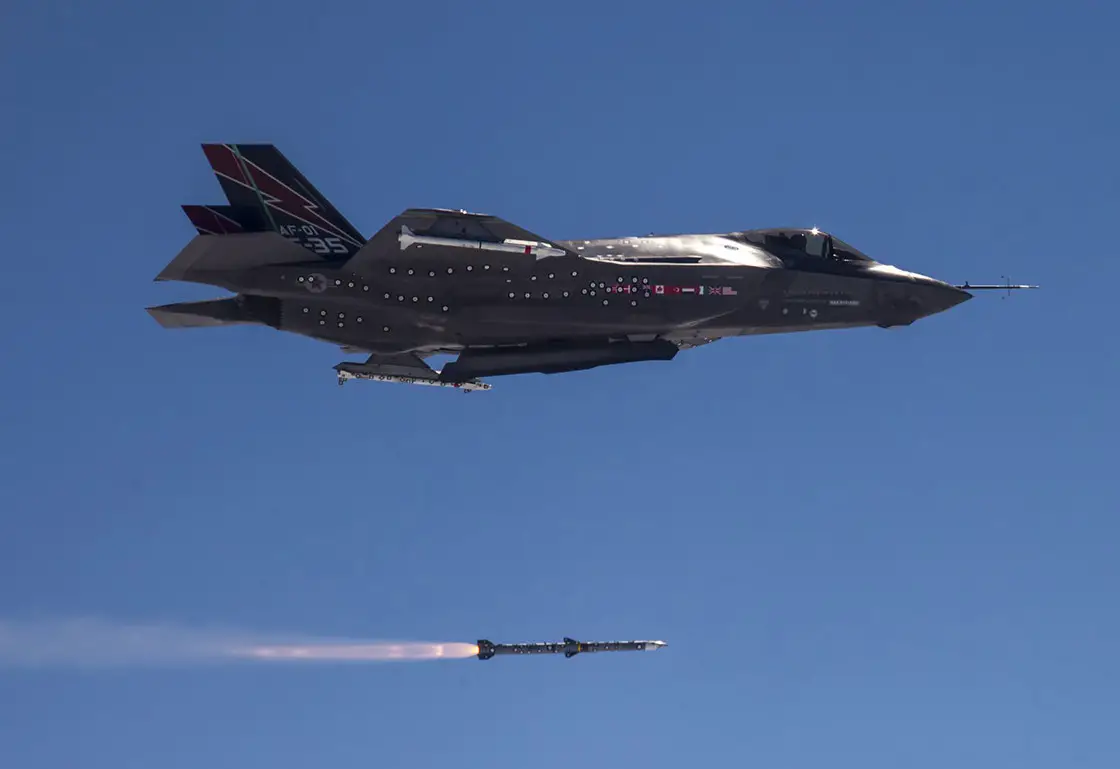Raytheon Missiles Systems, Tucson, Arizona, has been awarded a $495,058,000 cost-plus-fixed-fee, cost-plus-incentive-fee, firm-fixed-price, fixed-price-incentive-fee, indefinite-delivery/indefinite-quantity contract for advanced medium range air-to-air missile (AMRAAM) program support and annual sustainment. The contractor will provide non-warranty repairs, program support, contractor logistics support and service life prediction program analysis supporting the AMRAAM weapon system. Work will be performed in Tucson, Arizona, and is expected to be completed June 30, 2026. This award is the result of a sole-source acquisition. Concurrently, the first task order will be awarded with $989,450 in fiscal 2020 research, development, test and evaluation funds. The U.S. Air Force Lifecycle Management Center, Eglin Air Force Base, Florida, is the contracting activity (FA8675-20-D-0020).
The AIM-120 Advanced Medium-Range Air-to-Air Missile (AMRAAM), is an American beyond-visual-range air-to-air missile (BVRAAM) capable of all-weather day-and-night operations.The AMRAAM missile packs unprecedented performance into a lightweight, cost-effective package. Because of the weapon’s ongoing modernization and proven performance, it continues to deliver dependability and versatility.The system offers operational flexibility in air-to-air and surface-launch engagements. In the surface-launch role, it is the baseline weapon on the National Advanced Surface-to-Air Missile System, best known as NASAMSâ„¢ launcher. In the air-to-air role, the weapon’s advanced active guidance section provides aircrew with flexibility and lethality. Its mature seeker design allows it to quickly find targets in the most challenging environments.

AMRAAM has an all-weather, beyond-visual-range (BVR) capability. It improves the aerial combat capabilities of US and allied aircraft to meet the threat of enemy air-to-air weapons as they existed in 1991. An inertial reference unit and micro-computer system makes the missile less dependent upon the fire-control system of the aircraft. Once the missile closes in on the target, its active radar guides it to intercept. This feature, known as “fire-and-forget”, frees the aircrew from the need to further provide guidance, enabling the aircrew to aim and fire several missiles simultaneously at multiple targets and break a radar lock after the missile seeker goes active and guide themselves to the targets.The missile also features the ability to “Home on Jamming,” giving it the ability to switch over from active radar homing to passive homing .
Designed with a 7-inch (180mm) diameter form-and-fit factor, and employing active transmit-receive radar guidance instead of semi-active receive-only radar guidance, it has the advantage of being a fire-and-forget weapon when compared to the previous generation Sparrow missiles. When an AMRAAM missile is launched, NATO pilots use the brevity code Fox Three. The AMRAAM is the world’s most popular beyond-visual-range missile, and more than 14,000 have been produced for the United States Air Force, the United States Navy, and 37 international customers. The AMRAAM has been used in several engagements and is credited with ten air-to-air kills. The AMRAAM missile has been integrated onto the F-15 Strike Eagle, F-16 Fighting Falcon, F/A-18 Super Hornet, F-22 Raptor, Eurofighter Typhoon, JAS-39 Gripen, Tornado and Harrier.













